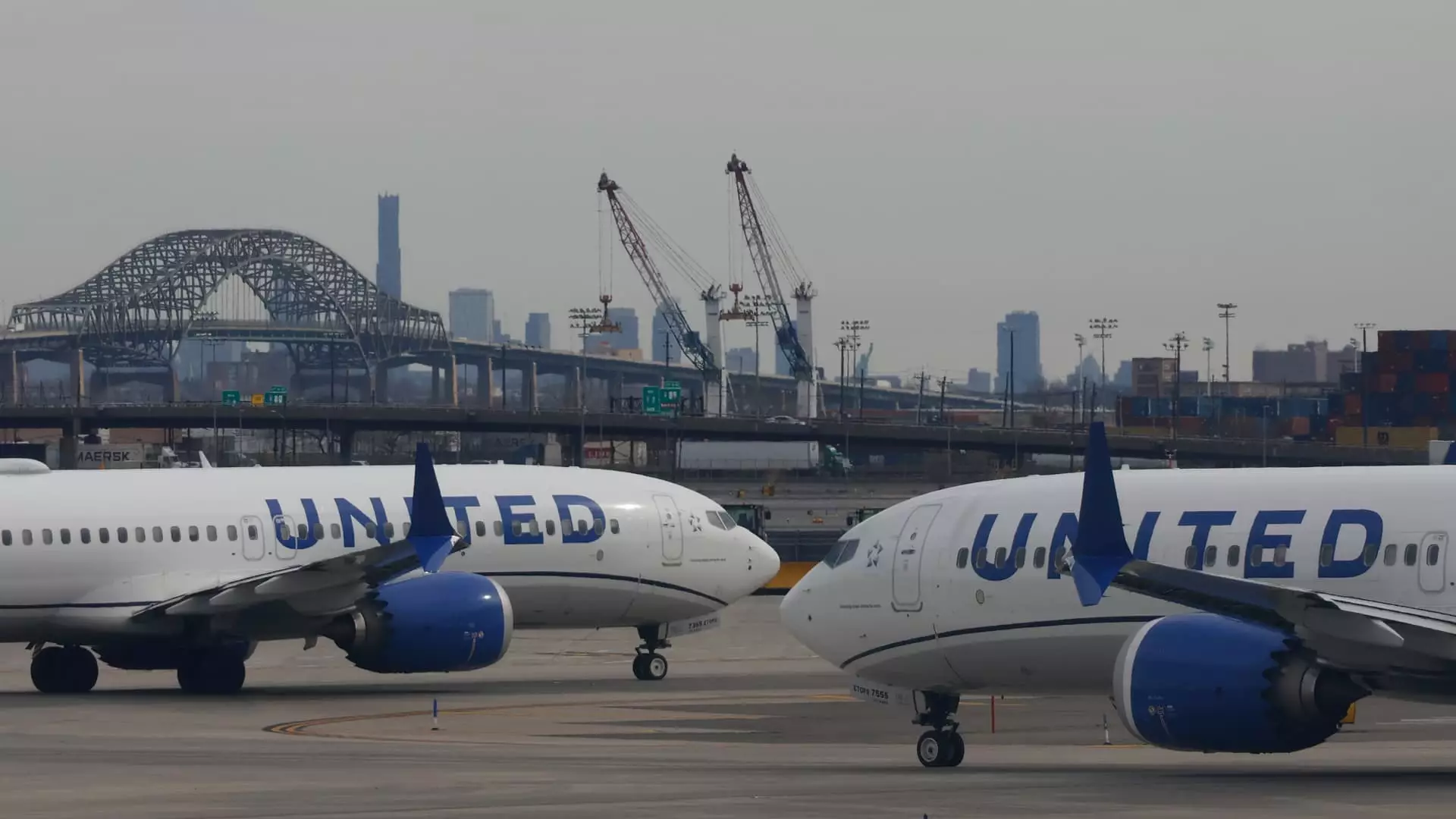In an alarming response to ongoing air travel disruptions, United Airlines has announced the cancellation of 35 roundtrip flights each day from its Newark Liberty International Airport hub. This decision, revealed by CEO Scott Kirby, comes after an unprecedented number of passengers experienced hours of delays—adding further fuel to the fire of an already beleaguered aviation system. With a staggering 10% reduction in daily flights, United’s proactive measures reflect a deep-rooted crisis in the air travel industry that is ripping apart the travel plans of countless Americans.
What makes this situation even more intolerable is the acknowledgment of systemic failures within the Federal Aviation Administration (FAA). Kirby has pointed fingers at air traffic controller staffing shortages and technological shortfalls, clearly highlighting that the issue goes beyond mere operational miscalculations. Thousands of frustrated passengers have been left to scramble for alternatives, desperately trying to understand why the air travel they once took for granted has devolved into chaos.
Who Is to Blame? The FAA and Infrastructure Failings
It is essential to dissect the underlying causes of this turmoil. Kirby emphasized that nearly 20% of the air traffic controllers at Newark “walked off the job,” exacerbating an already critical staffing situation. That alarming statistic is not simply a random occurrence; it underscores years of underfunding and neglect at the FAA. With Newark being one of the busiest airports in the nation, how can we, as a society, in good conscience allow such negligence to persist?
Kirby’s words are a clarion call for necessary reforms, urging the FAA to impose stricter flight capacities at Newark. In a world where technology reigns supreme, it is maddening to see that outdated equipment continually hampers the efficiency and safety of air traffic control. Contrasting the current state of Newark with the measures that exist at LaGuardia Airport raises uncomfortable questions about agency accountability. Why must travelers carry the heavy burden of outdated systems?
Politics: The Heart of the Matter
The political ramifications of United’s flight cancellations cannot be ignored. Transportation Secretary Sean Duffy, in an unusual show of transparency, has acknowledged these ongoing challenges on social media. Though he champions infrastructural improvements, it’s high time we hold policy-makers accountable. Is it appropriate for the government to allow the air traffic control system to remain mired in technological dysfunction whilst our airports operate at maximum capacity?
Kirby mentioned that the Trump administration promised investments to rectify this aged infrastructure—but promises made do not always translate to actions taken. It begs the question: are we going to continue to prop up a system that has historically disregarded modernization and investment? As time passes, we watch our society’s infrastructure crumble while passengers become collateral damage.
The Need for Immediate Action
It is arguably necessary for a new vision of air travel to emerge—one that centers on the passenger experience instead of reactive measures after the fact. Airlines should not merely cut flights as a band-aid solution; instead, they must advocate for systemic changes that address the root causes of air travel inefficiencies. United’s promise to waive change fees and fare differences illustrates a commendable effort to mitigate the fallout on its customers, but how sustainable is that?
The FAA’s proposed incentives to ease controller shortages are commendable; yet they feel like a whisper of reform in a cacophony of operational failings. An urgent public dialogue around infrastructure is crucial. If the situation at Newark serves as a microcosm of the broader air travel landscape, passengers should demand more than just apologies and temporary solutions.
As we navigate this turbulent era in aviation, it is clear that we must collectively push for a reimagined air travel system—one that takes the needs of its passengers seriously and acknowledges the interconnectedness of staffing, technology, and customer satisfaction. From delayed flights to the inadequacies lying within our organization systems, we can’t simply shrug off this growing crisis any longer. It’s time to take action, and the time is now.

